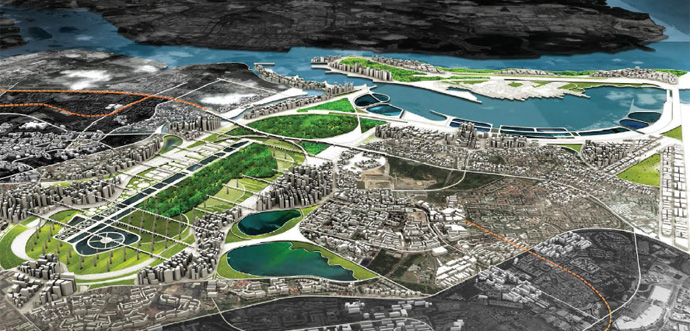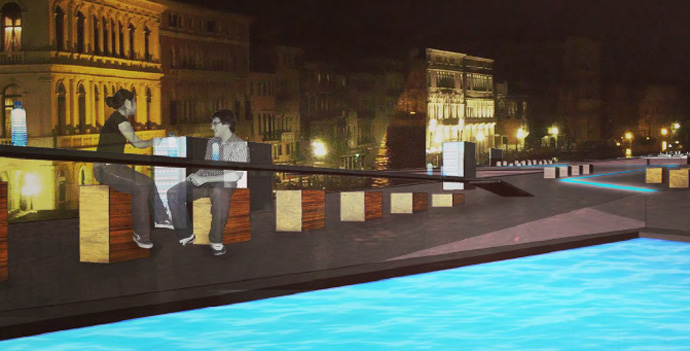Urban SOS: All Systems Go
How can Thailand’s capital of Bangkok reduce flooding, clean up its water, and improve transportation? How can the island city-state of Singapore build food resiliency? How can Quito, Equador solve climate-change-driven water problems?
Student finalist teams will present their answers to these questions on Thursday, October 15 at the A + D Museum in Los Angeles in response to the sixth Urban SOS competition. This year’s competition – co-hosted by AECOM, the Van Alen Institute, and the Rockefeller Foundation’s 100 Resilient Cities initiative – sought proposals for more resilient urban food, water, and energy systems in one of the 100 Resilient Cities’ identified metros.
The contest is open annually to undergraduate and graduate students at all levels of higher education around the world. Teams are comprised of individuals pursuing degrees across the spectrum of design, engineering, planning, environmental science and social science. Urban SOS challenges students to work across disciplines to address the toughest challenges facing cities.
Canal SOS
Michel Liang (Civil Engineering, Berkeley City College), Sunantana Nuanla-or (Masters of Landscape Architecture, Louisiana State University), Pin Udomcharoenchaikit (Masters of Environmental Science, University of Aegean), and Jacky Wah (Bachelors of Landscape Architecture, Louisiana State University) identified Bangkok’s canals as an existing infrastructure asset that can be adapted to simultaneously check floods, clean water, and provide greater boat transportation.
A Third Reserve
Daniel Lau (Masters of Architecture, University of Pennsylvania), Joseph Rosenberg (Masters of Landscape Architecture, University of Pennsylvania), and Lindsay Rule (Masters of Landscape Architecture / Architecture, University of Pennsylvania) examined how Singapore’s limited land resources can be cultivated to offset its current overdependence on imported food – and create unique urban experiences.
Water Power
Bennett Lambert (PhD Civil and Environmental Engineering, MIT) and Elizabeth Reed Yarina (Masters of Architecture / City Planning, MIT) explored how public spaces can convert Quito’s stormwater problem into a drinking water and energy generation opportunity.
On the 15th a jury will select a winner from among these finalist teams. The winner will receive a cash prize and up to US$25,000 of cash and in-kind staff time from AECOM to begin implementing their strategy.
“We’re excited to continue Urban SOS, and this year partner with the Van Alen Institute and 100 Resilient Cities,” said Bill Hanway, AECOM’s global head of Architecture and the competition’s executive sponsor. “The program stresses the need for interdisciplinary thinking in urban problem solving, engages AECOM staff around the world as they review hundreds of entries to select the finalists, and can make a direct impact in a city as we look to implement the winning scheme.”









